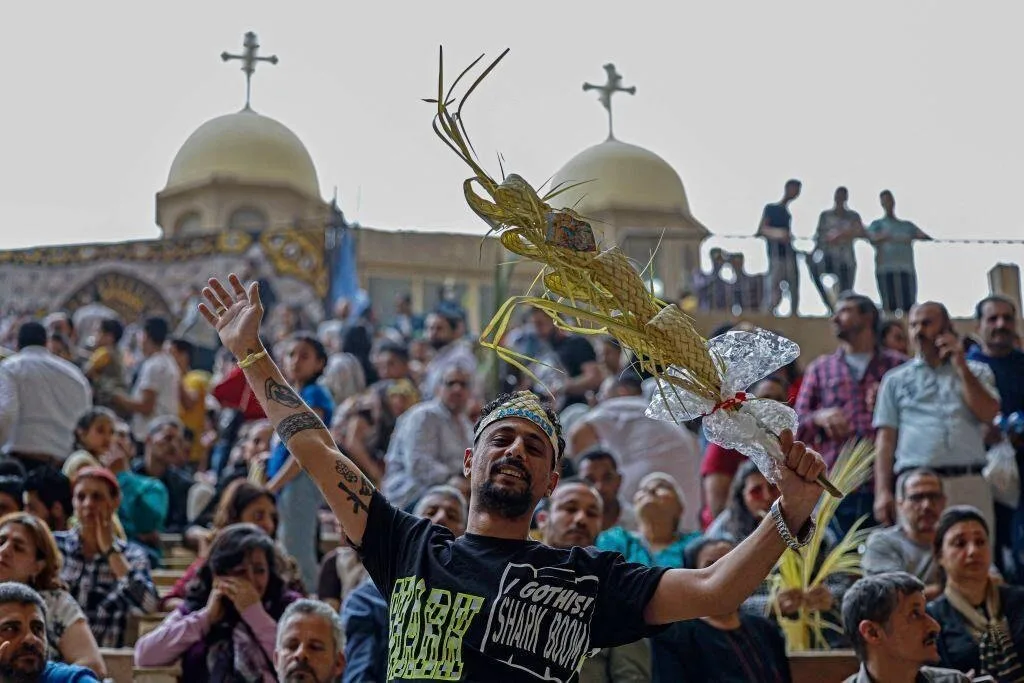Palm Sunday, the first day of Holy Week, holds a special place in the hearts of Christians worldwide. In Egypt, where Christianity has deep historical roots, the traditions and significance of Palm Sunday are celebrated with unique customs that reflect the country’s rich cultural tapestry. Let’s explore how Egypt commemorates Palm Sunday and the meanings behind these cherished practices.
The Significance of Palm Sunday
Palm Sunday marks Jesus Christ’s triumphant entry into Jerusalem, as recorded in the Christian Gospels. As he entered the city, crowds welcomed him with palm branches, symbolizing victory, peace, and triumph. This event set the stage for the Passion of Christ, leading to his crucifixion and resurrection.
Traditional Practices in Egypt
In Egypt, Palm Sunday, or “Sha’anini,” is a significant event for the Coptic Orthodox community, the largest Christian denomination in the country. The day is celebrated with a mix of religious services, family gatherings, and community events. Here’s a closer look at some of the traditions:
- Church Services and Processions: Egyptian Christians attend special church services on Palm Sunday. These services typically include processions where congregants carry palm branches and sing hymns that honor Jesus’ entry into Jerusalem. The processions often circle the church, creating a sense of unity and celebration.
- Palm Crosses and Decorations: Palm branches play a central role in the Palm Sunday tradition. Egyptians weave palm fronds into intricate crosses, which they carry during processions and display in their homes. These crosses serve as a reminder of the day’s significance and are often blessed during the church service.
- Symbolism of Palm Branches: The palm branches symbolize victory and renewal, recalling Jesus’ entry into Jerusalem as a king of peace. In Egypt, this symbolism resonates with the country’s ancient history, where palm trees were revered for their strength and resilience.
- Family Gatherings and Community: After church services, families gather for meals and socializing. It’s a time for bonding and reflection, with traditional dishes like “koshary” and “fatta” often served. Community events, such as fairs and markets, also take place, creating a festive atmosphere.
The Connection to Holy Week
Palm Sunday is the beginning of Holy Week, leading up to Easter Sunday. In Egypt, the day is seen as a moment of joy before the solemnity of Holy Week’s subsequent events. It invites believers to reflect on the journey of Jesus, from his triumphant entry to the sacrifice of the crucifixion.
Palm Sunday in Modern Egypt
Today, Palm Sunday continues to be a vibrant celebration in Egypt, reflecting both religious tradition and cultural heritage. The day brings together families, communities, and congregations, emphasizing themes of hope and renewal. It serves as a reminder of the enduring strength of faith and the rich history of Christianity in Egypt.
Whether through processions, palm crosses, or family gatherings, Palm Sunday traditions in Egypt offer a unique and meaningful way to connect with the significance of this special day. As Christians across the country celebrate, the spirit of Palm Sunday resonates, echoing the story of peace and triumph that has transcended generations.









What do you think?
It is nice to know your opinion. Leave a comment.